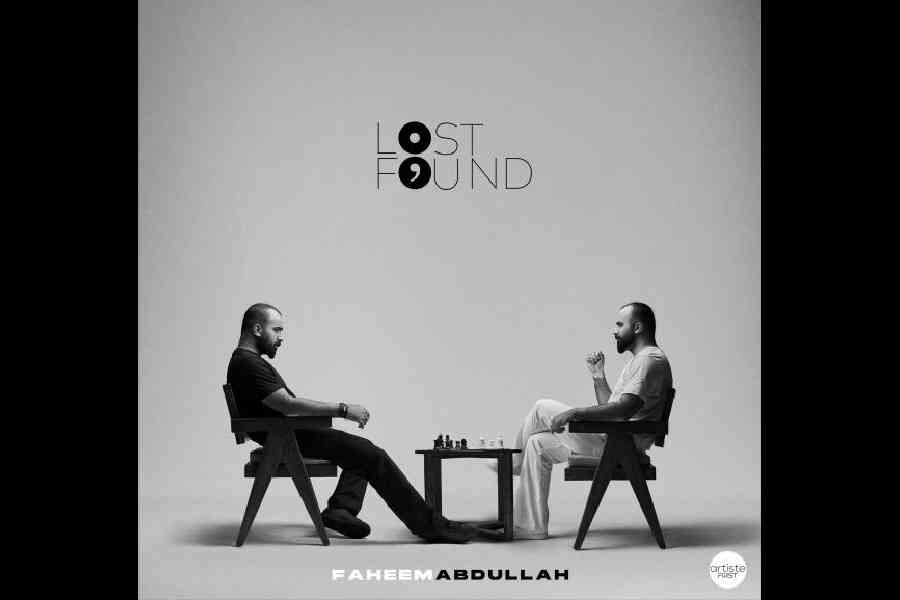Faheem Abdullah, a celebrated artiste from Kashmir, has steadily delivered chart-topping numbers like Ishq, Sajde, Ae yaad, Jhelum. His songs deal with themes like love, longing, homeland, and loss, and his deep voice, and meaningful lyrics make a mark on his listeners. Ishq has garnered significant attention in terms of numbers with over 10 million views on YouTube. Recently he dropped his latest album Lost;Found in collaboration with artistes like Sifar, Yawar Abdal, Rauhan Malik, Huzaif Nazar, Junaid Ahmad, Qassam Hussain, Arslan Nizami, Noor Mohammad, Zartasha Zainab, Irfan Bukhari, Muneem Nazir, Khalid Ahmed, Pho and Zeeshaan Nabi. “The album is a collaboration between artistes from different genres and styles. All the songs are sentimental, personal and are about themes that the artiste has felt and lived. Every song in the album attempts to tell a story,” he says. A t2 chat with Faheem. Excerpts:
How’s the album different from your previous works?
I think Lost;Found gave me the opportunity to tell a story in a narrative format. It gives you an insight into what the artiste is thinking and all the experiences he’s had in a lifetime. A single tells a story, but an album explains it better. I have put my heart into the music that I’ve made and it’s the same with Lost;Found. But I would say with Lost;Found there’s better relatability. There’s a song for every listener to relate to, a lot of collaborations and many genres.
The themes that you work on are mostly on love, longing, loss — how has your personal life reflected in your work?
Yes, the songs have a lot to do with love, longing, loss and even homeland. My works are a reflection of my personal experiences. There are three things — either you can write about what you’ve experienced, or the experiences of someone you’ve been with very closely and almost lived their experiences with them. The third is imagining an ideal setup and the desire to live a certain way. My album has touches of all three.
As an independent artiste what’s your struggle been like?
Struggle is a regular part of the life of an artiste whether or not they’re independent. There’s a lot of struggle involved when you’re not an independent artiste anymore as well. I had to struggle a lot. Being a musician from Kashmir which lacks infrastructure, my work was limited to one single a year and I wanted to be more productive. I had to struggle a lot to feed the artiste in me. I think struggle refines you and art, without it, I wouldn’t have done half of what I could and it’s an essential part.
After Ishq how’s the graph gone up? What are your thoughts on it?
After Ishq the graph has gone up in terms of numbers yes. People have received it really well, the song got so many streams and compliments. I’m overwhelmed and it’s actually a great thing for an artiste to be loved by the audience. However, that doesn’t change me as a person. I’m grateful for my art and appreciation. What a time to be alive! What a time to do music.
Why do you think people loved Ishq?
The idea of love and the theme of love is universal. The way Ishq was written, it really hit that spot. It was love to the level of devotion, it was pure and it was innocent and I think that’s why people loved the song and related to it. People from all over the world reached out through emails, Instagram DMs and other modes.
How did you get into music?
My first exposure to music was from my uncle, who listened to Lucky Ali and Adnan Sami, and music subconsciously slid into my soul, I would say. Later on, I discovered myself as a writer and that I could compose, I discovered that music was my calling, to tell people what I feel and I think this art is an advocate for those who feel impaired to express themselves. Working on music from Kashmir is so fulfilling and satisfying because people come to Kashmir for a break from their mundane lives and peace, but when you live there, you feel it all the time, along with the other feelings of being a Kashmiri. When you work on music, you’re embodying Kashmir, every song of yours resonates with how the landscape is and I think it’s a great contribution to art. It has only helped me be different from the rest. It’s a blessing.










